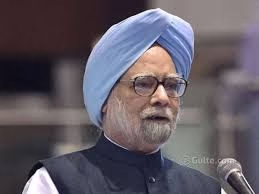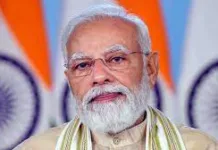Tribute to Dr Manmohan Singh- a reformer and India’s savior at crucial time
Kanwar Inder singh/ royalpatiala.in News/ December 26,2024
India’s fourteenth Prime Minister, Dr. Manmohan Singh was rightly acclaimed as a thinker and a scholar. He was well regarded for his diligence and his academic approach to work, as well as his accessibility and his unassuming demeanour.
On 24 July 1991 was the day when Manmohan Singh as finance minister presented his first ever budget, just a month after being sworn in the cabinet of prime minister P.V. Narasimha Rao. The government also unveiled a game-changing new industrial policy removing many roadblocks that hindered industries from flourishing.
In 1991, India faced its worst economic crisis and was on the brink of a sovereign default. The 1990-91 Gulf War had led to a sharp increase in oil prices and a fall in remittances from the Indian workers working overseas. This led to a sharp depletion in India’s forex reserves — at less than $6 billion, and this was just enough to meet around two weeks of the country’s imports.
The game-changing new industrial policy was unveiled on the eve of Budget 1991. It proposed some massive changes in the way India treated its industries and foreign investment by moving away from a licence raj regime. The policy relaxed some of the provisions in Monopolies and Restrictive Trade Practices Act to facilitate easier entry and restructuring of businesses by facilitating mergers and amalgamations. The policy ended the public sector monopoly in many sectors and announced a policy of automatic approval for foreign direct investment up to 51 per cent as against the earlier cap of 40 per cent for foreign equity investments.

Public sector monopoly was restricted to only a few sectors important from the point of view of national security. It also abolished industrial licensing for all industries barring 18 irrespective of levels of investment.
Tribute to Dr Manmohan Singh- a reformer and India’s savior at crucial time. All these changes made it easier to do business in India and saw a deluge of foreign goods and investments flooding the Indian market in the subsequent years.
Presented by Manmohan Singh on 24 July, the budget was a continuation of the reform measures undertaken by the Indian government over the last few weeks. There were some difficult measures taken. Faced with a rising fiscal deficit, the budget increased corporate tax rates by 5 percentage points to 45 per cent and introduced the concept of tax deducted at source for some financial transactions like bank deposits. It opened up mutual funds to the private sector and relaxed rules for investment by non-residents.
Over the next eight months, the government announced many steps to continue the reforms momentum and pull India out of the crisis. These included a second trade policy package to boost exports and a package for developing small firms.












